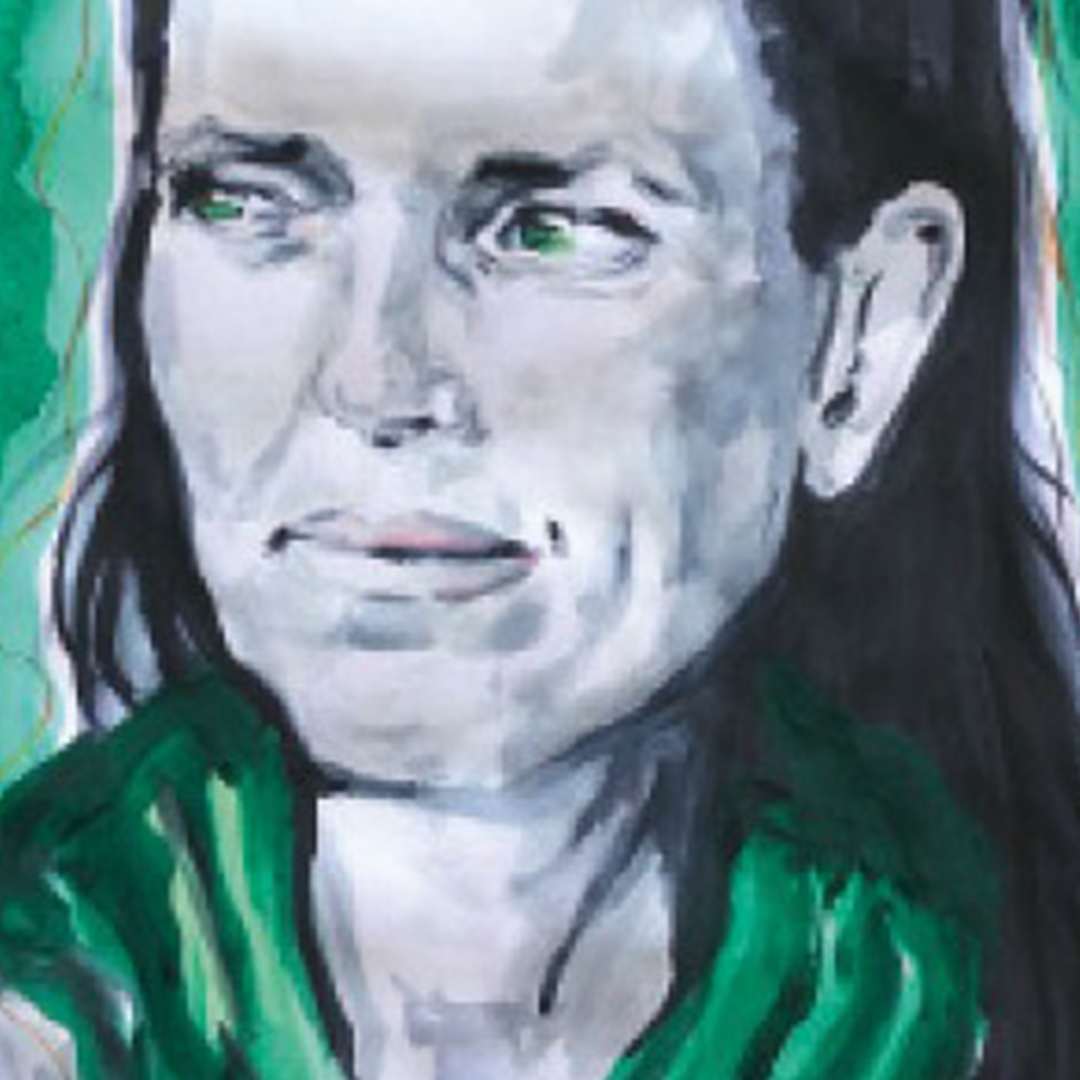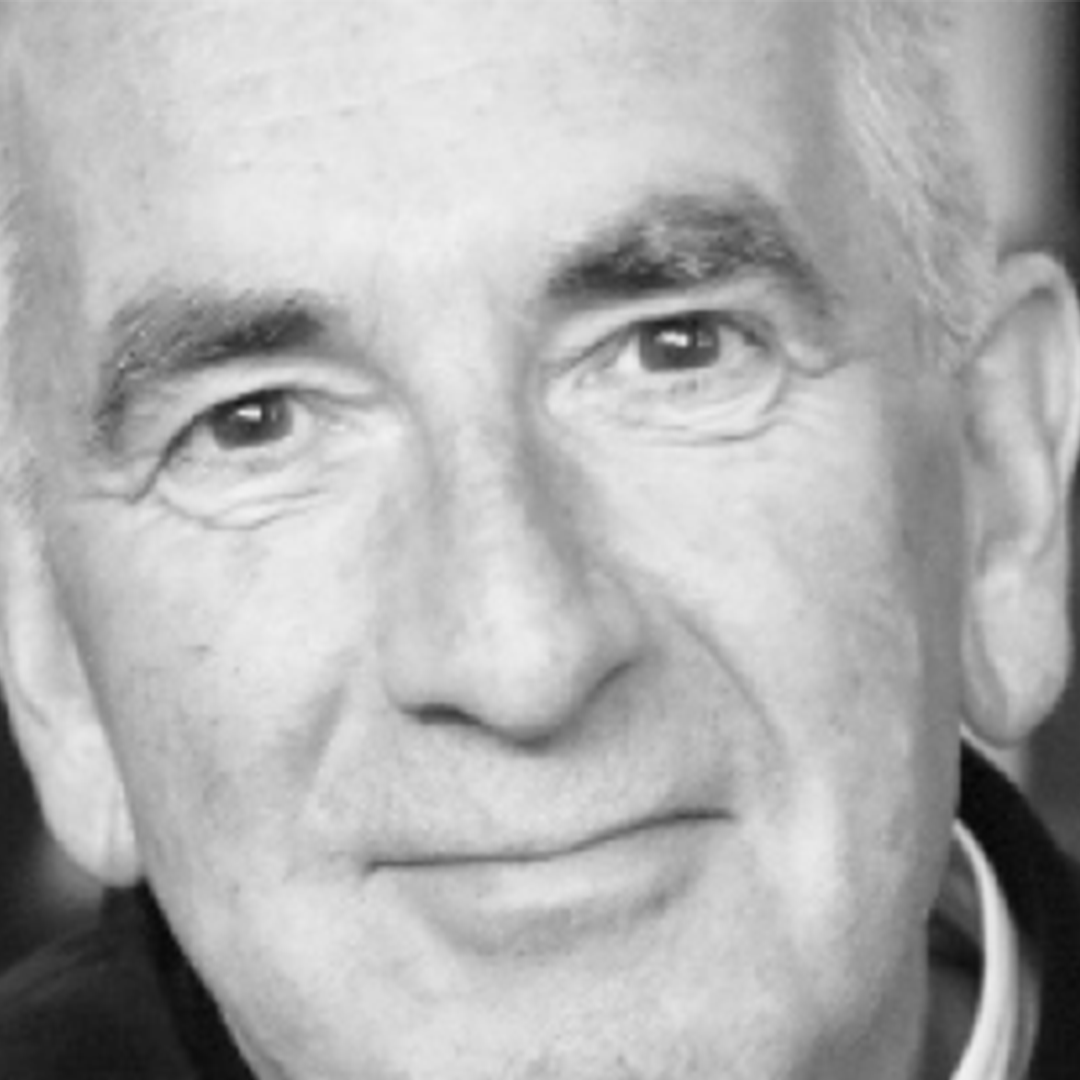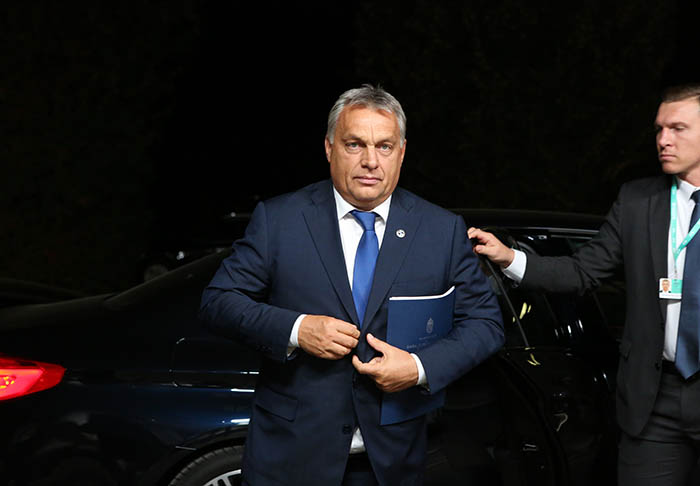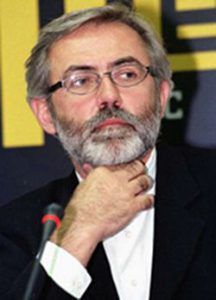Judged
FEATURING

Xinran
Writer

Claudia Piñeiro
Novelist

Robert Harris
Author
FEATURING

Writer

Novelist

Author
[vc_row][vc_column][vc_custom_heading text=”Responding to violations of media freedom in Hungary has become a conundrum for the EU. With populist parties poised for large gains in the next European election, Sally Gimson explores in the spring 2019 issue of Index on Censorship magazine what the EU could do to uphold free speech in member countries” google_fonts=”font_family:Libre%20Baskerville%3Aregular%2Citalic%2C700|font_style:400%20italic%3A400%3Aitalic”][vc_column_text]

Hungarian prime minister Viktor Orbán. Credit: EU2017EE Estonian Presidency / Flickr
[/vc_column_text][vc_row_inner][vc_column_inner width=”1/4″][vc_icon icon_fontawesome=”fa fa-quote-left” color=”custom” size=”xl” align=”right” custom_color=”#dd3333″][/vc_column_inner][vc_column_inner width=”3/4″][vc_custom_heading text=”It’s like joining a sorority with very strict rules for entering, but when you are there you can misbehave and it is covered up by the group” font_container=”tag:h3|text_align:left” google_fonts=”font_family:Libre%20Baskerville%3Aregular%2Citalic%2C700|font_style:400%20italic%3A400%3Aitalic”][/vc_column_inner][/vc_row_inner][vc_column_text]
[/vc_column_text][vc_column_text]
[/vc_column_text][/vc_column][/vc_row][vc_row][vc_column width=”1/4″][vc_icon icon_fontawesome=”fa fa-quote-left” color=”custom” size=”xl” align=”right” custom_color=”#dd3333″][/vc_column][vc_column width=”3/4″][vc_custom_heading text=”I think Europeans generally made the mistake of thinking that it doesn’t matter if we have one small country which is going the wrong way” font_container=”tag:h3|text_align:left” google_fonts=”font_family:Libre%20Baskerville%3Aregular%2Citalic%2C700|font_style:400%20italic%3A400%3Aitalic”][/vc_column][/vc_row][vc_row][vc_column][vc_column_text]
[/vc_column_text][/vc_column][/vc_row][vc_row][vc_column][vc_column_text]
[/vc_column_text][/vc_column][/vc_row][vc_row][vc_column width=”1/3″][vc_custom_heading text=”Is this all the local news?” font_container=”tag:h3|text_align:left” link=”url:https%3A%2F%2Fwww.indexoncensorship.org%2F2018%2F12%2Fbirth-marriage-death%2F|||”][vc_column_text]The spring 2019 issue of Index on Censorship magazine asks Is this all the local news? What happens if local journalism no longer holds power to account?
With: Libby Purves, Julie Posetti and Mark Frary[/vc_column_text][/vc_column][vc_column width=”1/3″][vc_row_inner][vc_column_inner][vc_single_image image=”105481″ img_size=”full” onclick=”custom_link” link=”https://www.indexoncensorship.org/2018/12/birth-marriage-death/”][/vc_column_inner][/vc_row_inner][/vc_column][vc_column width=”1/3″][vc_custom_heading text=”Subscribe” font_container=”tag:h3|text_align:left”][vc_row_inner][vc_column_inner][vc_column_text]In print, online. In your mailbox, on your iPad.
Subscription options from £18 or just £1.49 in the App Store for a digital issue.
Every subscriber helps support Index on Censorship’s projects around the world.
![]() SUBSCRIBE NOW[/vc_column_text][/vc_column_inner][/vc_row_inner][/vc_column][/vc_row][vc_row][vc_column][vc_column_text]This article has been updated on 18 April 2019 to reflect that the name of organisation Lutz Kinkel works for had been written incorrectly. The article read “European Centre for Press and Media Reform”, when it should have read “European Centre for Press and Media Freedom”.[/vc_column_text][/vc_column][/vc_row]
SUBSCRIBE NOW[/vc_column_text][/vc_column_inner][/vc_row_inner][/vc_column][/vc_row][vc_row][vc_column][vc_column_text]This article has been updated on 18 April 2019 to reflect that the name of organisation Lutz Kinkel works for had been written incorrectly. The article read “European Centre for Press and Media Reform”, when it should have read “European Centre for Press and Media Freedom”.[/vc_column_text][/vc_column][/vc_row]
[vc_row][vc_column][vc_single_image image=”104453″ img_size=”full” add_caption=”yes”][vc_column_text]Additional reporting by Ada Borowicz, Ilcho Cvetanoski, Lazara Marinković and Zoltán Sipos
The opening volley in a sustained campaign of vilification directed at Serbia‘s independent media was fired by the state-owned weekly Ilustrovana Politika at the end of October, with an article that accused journalists who are critical of the government of being “traitors and collaborators with the enemies of Serbia”.
Two weeks later, Ilustrovana Politika followed up with another piece that accused the veteran journalist Ljiljana Smajlović – who has long been critical of the nationalistic legacy bequeathed on the country by its former leader Slobodan Milosević and co-founded the Commission Investigating the Murders of Journalists in Serbia – of complicity in the 1999 NATO bombing of Belgrade.
In mid-December, Ilustrovana Politika’s campaign of character assassination against Smajlović ratcheted up another level with a garish front page depicting her as a Madonna figure with two naked infants bearing the features of Veran Matić, the chairman of the commission, and US Ambassador to Serbia Kyle Scott.
Smajlović has no doubt over what lies behind this tidal wave of denigration, of which she has become the prime target.
History repeating itself?

Editor Slavko Ćuruvija was murdered in 1999.
The long-running trial of four ex-members of the Serbian intelligence service accused of the murder of Dnevni Telegraf editor Slavko Ćuruvija – shot dead in April 1999 a few days after the pro-government Politika Ekspres accused him of welcoming the NATO bombardment – is now in its final stages, and Smajlović is convinced that the current campaign against her is designed to influence the judges in the case.
“The attacks come from the same Milosevic-era editors who also targeted my colleague Ćuruvija as a traitor prior to his assassination,” she told Mapping Media Freedom. “What is also sinister is that they are published and printed by the same state-owned media company that targeted Slavko nearly twenty years ago.”
“The clear implication is that I am the same kind of traitor as he was. How will that affect the judges? Will they fear this is not a good time to hold state security chiefs to account?” she added.
While Smajlović admits that Ilustrovana Politika’s denunciation has made her feel insecure, she insists she is less concerned for her own safety than worried about the consequences for the outcome of the Ćuruvija trial. Quoting Marx’s dictum that “History repeats itself, first as tragedy and then as farce”, Smajlović said. “I hope this is the farce part.”
Laying the blame
In Serbia and other central and eastern European countries, the assignment of responsibility for historic causes of resentment and the potential of these to further divide a polarised public often form the background to attacks on independent journalists by their state-approved colleagues.
The thorny topic of Poland’s relations with Germany during the last century recently gave pro-government media in Poland a chance to accuse independent media of being insufficiently patriotic and even of falsifying facts.

Journalist Bartosz Wieliński was targeted by the head of TVP Info’s news site.
In November, after Bartosz Wieliński, a journalist with the independent daily Gazeta Wyborcza, gave a critical account of a speech made by the Polish ambassador to Berlin at a conference devoted to the centenary of Poland’s independence, the head of the state broadcaster’s news website, TVP Info, accused him of lying and of putting the interests of Germany before those of his own country.
Only a few days before this attack, two media outlets that support Poland’s ruling national-conservative Law and Justice (PiS) party accused the independent US-owned channel TVN of fabricating the evidence on which a report about the resurgence of neo-Nazism in Poland was based.
Since it came to power in 2015, PiS – which has been accused by its critics of tolerating organisations that espouse far-right ideologies – has put pressure on independent media outlets, many of which are foreign-owned, as part of its campaign to “re-polonise” the media, and now appears to be using the public broadcaster and other tame outlets as accessories in this drive.
Willing accomplices
In Hungary, where the government led by Viktor Orbán has succeeded in imposing tight control on all but a few determinedly independent media outlets, a number of loyal publications are available for the purposes of vilification.

2015 Freedom of Expression Journalism Award winner Tamás Bodoky, founder of Atlatszo.hu
In September, a whole raft of pro-government media outlets vied with each other to depict Tamás Bodoky, the editor-in-chief of the investigative journalism platform Átlátszó and winner of the 2015 Index on Censorship Freedom of Expression Award for Journalism, as a “Soros hireling”. Bodoky became the target of a co-ordinated smear campaign after he posted on Facebook a picture of himself taken in Brussels with Dutch Green MEP Judith Sargentini, whose report on the Fidesz government’s infringement of core EU values had formed the basis for the European parliament’s censure motion against Hungary a few weeks earlier.
Another Hungarian journalist, András Dezső, who works for the independent news website Index.hu, also recently came under attack from pro-government media outlets after a Budapest court let him off with a reprimand over a case in which he was alleged to have made unauthorised use of personal information. In an article published before April’s general election, Dezső had cast doubt on the account of a woman who declared on Hungarian TV that she felt safer in Budapest than in Stockholm because of the lower level of immigration in Hungary. The airing of the interview by the public broadcaster was seen as providing support for Fidesz’s anti-immigration stance and aiding its election victory.
A criminal charge was issued against Dezső for “misuse of personal data”, and after he received what was described in the Hungarian media as “the mildest possible punishment”, two pro-government news websites, 888.hu and Origo.hu, accused him of deliberately propagating fake news and seeking to mislead his readers.
Why do they do it?
What motivates those journalists who smear their colleagues who seek to hold power to account?
There does not appear to be a simple answer to this question. While some may vilify fellow journalists to order purely for financial gain (or because of a desire for job security, government-sponsored media outlets generally being on a more secure financial footing than their independent counterparts), some appear to approach the task with at least a measure of conviction.
Ilcho Cvetanoski, who reports on Bosnia, Croatia, Macedonia and Montenegro for Mapping Media Freedom and has observed many smear campaigns over the years, believes that financial and ideological motivating factors are often inextricably intertwined. He points out that two decades on from the armed conflicts in the region, Balkans societies are still deeply divided along ideological and ethnic lines, and many people still find it extremely difficult to accept the right of others to see things differently. Cvetanoski notes that there are many “true believers” who are genuinely convinced that they have a duty to defend their country from the “other” – a group in which they tend to lump critical journalists along with mercenaries, spies and traitors.
Lazara Marinković, who covers Serbia for Mapping Media Freedom, believes that the main motivation there is a need to be on the winning side and to please those in power. “Often they actually enjoy doing it, either for ideological reasons or because they feel more powerful when they are on the side of the ruling party,” she told Mapping Media Freedom. Marinković noted that the majority of Serbian tabloids and TV stations that conduct smear campaigns against independent journalists are owned by businessmen who have close links to President Aleksandar Vučić’s national conservative Serbian Progressive Party (SNS). Vučić began his political career during the Milosević era, when he served as Minister of Information.
In Poland, the divisions in society and the consequent lack of tolerance in political culture have been blamed for the increasing polarisation of the media. Michal Głowacki, a professor of media studies at Warsaw University, told Mapping Media Freedom that journalists take their cue from politicians in failing to show respect for fellow journalists associated with the “other side”. “They even use the same language as politicians,” Głowacki notes.
This is a view echoed by Hungarian journalist Anita Kőműves, a colleague of Bodoky’s at Átlátszó. Kőműves, however, insists that while journalists who work for independent media outlets strive to uphold the principles of journalistic ethics, the same cannot be said of those employed by pro-government outlets. “Some of those serving the government at propaganda outlets think that the two ‘sides’ of the Hungarian media are equally biased and that they are not acting any differently from their counterparts in the independent media sphere. However, this is not true: pro-government propaganda outlets do not adhere to even the basic rules of journalism,” she told Mapping Media Freedom.[/vc_column_text][vc_raw_html]JTNDaWZyYW1lJTIwd2lkdGglM0QlMjI3MDAlMjIlMjBoZWlnaHQlM0QlMjI0MDAlMjIlMjBzcmMlM0QlMjJodHRwcyUzQSUyRiUyRm1hcHBpbmdtZWRpYWZyZWVkb20udXNoYWhpZGkuaW8lMkZ2aWV3cyUyRm1hcCUyMiUyMGZyYW1lYm9yZGVyJTNEJTIyMCUyMiUyMGFsbG93ZnVsbHNjcmVlbiUzRSUzQyUyRmlmcmFtZSUzRQ==[/vc_raw_html][vc_basic_grid post_type=”post” max_items=”4″ element_width=”6″ grid_id=”vc_gid:1545385969139-cb42990e-b3e2-3″ taxonomies=”9044″][/vc_column][/vc_row]
[vc_row][vc_column][vc_column_text]

Viktor Orban (Credit: European People’s Party)
As Hungary prepares for parliamentary elections, independent journalists have become a target of the pro-government media outlets. This follows a speech by Hungarian prime minister Viktor Orban at the end of July at Tusványos, the annual Fidesz jamboree in Băile Tușnad, Romania, during which he said: “We must stand our ground against the Soros mafia network and bureaucrats in Brussels, and will have to go to battle against the media they operate in the coming months.”
Orban’s message at Tusványos is considered a preview of what to expect from the Hungarian government in the following months. A few days after the speech, Magyar Nemzet daily reported that the prime minister’s words signal a clear change in tactics: instead of defaming independent media outlets and their owners, pro-government media outlets started going after prominent journalists, known for their work of exposing the corruption of the Hungarian government.
During September 2017, pro-government media outlets started publishing articles discrediting leading Hungarian journalists critical to Orban’s regime.
On 5 September 2017, 888.hu published a list of journalists accused of being “mouthpieces” for George Soros, who has been called a “national security risk” and a “public enemy” by Orban for allegedly supporting the mass immigration of Muslims into Europe.
“The international media, with a few exceptions, generally write bad things about the government because a small minority with great media influence does everything to tarnish the reputation of Hungary in front of the world — prestige that has been built over hundreds of years by patriots,” 888.hu wrote.
Among those listed are Lili Bayer, a journalist working for Politico, László Balogh, a Pulitzer-winner photographer, Márton Dunai, Gergely Szakács and Sándor Pető, journalists working for the Reuters news agency, as well as Zoltán Simon, a journalist working for Bloomberg, and ZDF producer István Sinkovicz.
“The article is indicative of the extent to which the pro-government press seems willing to carry out the political orders of prime minister Viktor Orbán,” Budapest Beacon commented, adding that the editor in chief of 888.hu is Gábor G. Fodor, deputy chairman of Századvég Foundation’s board of trustees. Századvég is a think-tank and consultancy that has been embroiled in numerous scandals involving large government orders since 2010. The publisher of 888.hu is Modern Media Group Zrt., a company owned by Árpád Habony, an informal advisor to the prime minister.
The list was condemned by the 3,500-member National Association of Hungarian Journalists (MUOSZ). The body said that there is no evidence of any contact between Soros and the journalists named in the piece. “Stigmatising colleagues by using listing methods that hark back to former anti-democratic times is far from the practice of democratic journalism and informing (the public),” said MUOSZ.
The campaign against journalists continued on 11 September 2017 with a piece on 888.hu attacking Gergely Brückner, one of Hungary’s leading business journalists working at index.hu. The piece accused Brückner of writing an article about the political-diplomatic background of several millions of dollars transferred to Hungary from an Azerbaijani slush fund without any evidence.
“I was not particularly bothered by the editorial, although I don’t think he understands correctly where the trenches in the Hungarian media landscape are,” Gergely Brückner told Index on Censorship. “He also exaggerates my importance (of course, I felt flattered), and for sure he does misunderstand the goals I had with my articles.”
“It is known that the ruling party is always looking for enemies, these being refugees, Soros, the EU, NGOs and independent journalists, all of which are under attack,” Brückner added. “This is how they are trying to keep their core voters engaged.”
Unfortunately, ordinary media consumers have a difficulty in making a distinction between independent, fact-based journalism and biased, post-truth journalism, as Brückner explains. “I am not disturbed at being targeted and it does not influence my work or my sources. They had an obviously exaggerated opinion about me, but they did not have false statements. In the latter case, I would seek legal redress.”
On 14 September 2017, Attila Bátorfy, a data journalist at investigative website Atlatszo.hu and research fellow at CEU’s Center for Media and Communication Studies was also the target of a defamatory article published on an obscure blog, Tűzfalcsoport. The piece, illustrated with a photo of enlarged mites, is claiming that Bátorfy’s piece on the spread of Russian propaganda in Hungary is based on faulty evidence.
A day later, on 15 September 2015, Pesti Srácok, another website close to the government published an article about András Földes, a journalist working for index.hu who reported extensively on the migration crisis. The piece is a list of Földes’s more important reports, along with “ironic” commentary.
“When he goes to war zones, he watchfully takes a peek on the trenches, carefully avoiding danger, then he presents the things he saw as he wishes (…). His extraordinary talent is also shown by the fact that he believes anything to 17-year old immigrant men born on 1 January. At least we hope he naively believes the overstatements he writes about, and these (overstatements) are not invented by him,” the article goes.
Even if the readership of such a blog or website is relatively small, these articles are usually echoed in the media universe loyal to Orban and are often referenced by the public media as well, meaning that the allegations reach a considerable audience.
The recent defamatory pieces are only the tip of the iceberg of the attacks on press freedom in Hungary. Since 2010, the Hungarian government led by Orbán is working systematically to silence critical voices by changing the legal framework regarding media, redrawing the advertising market, introducing preferential taxes that only hit certain, independent broadcasters, buying up media companies, or simply closing them down, as happened with the largest opposition newspaper, Népszabadság.
The most alarming recent incidents regarding press freedom in Hungary:
Police check IDs of TV crew filming new PM office
Journalist assaulted at a Fidesz public forum
Largest opposition daily suspended
Parliamentary amendment restricts access to public information[/vc_column_text][/vc_column][/vc_row][vc_row][vc_column][vc_basic_grid post_type=”post” max_items=”4″ element_width=”6″ grid_id=”vc_gid:1506503807710-1289f6d8-e51b-2″ taxonomies=”2942″][/vc_column][/vc_row]